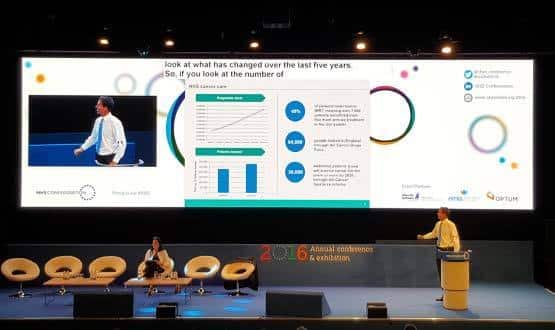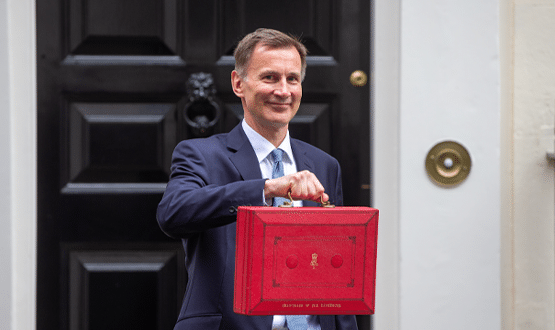Hunt “relentless” on delivering paperless NHS
- 16 June 2016

Health secretary Jeremy Hunt has said he will be “relentless’ in seeing through his commitment to a ‘paperless’ NHS by 2020, because technology underpins his ambitions for the NHS.
At the NHS Confederation’s annual conference in Manchester, Hunt said the paperless commitment, first made to a think-tank in 2013, was one of his “bolder promises’, but one he remained committed to because it was so important.
Indeed, he argued that new technology was one of three things that the NHS needed to concentrate on as it sought to tackle deficits while aiming to become “the highest quality healthcare system in the world.”
The others were tackling variation and taking a long term view of change. These, he argued, would help the NHS to maintain both access and quality within its current budget; which he effectively told his audience was non-negotiable,
“Some people ask me whether they should tackle quality or waiting lists or their deficit, and I say that is the wrong question,” Hunt told delegates to the event at Manchester Central. "We have to deliver safe and effective care within the budgets we have.”
He also said that whenever health secretaries had told the NHS to focus on one or other of these imperatives, something had gone disastrously wrong.
He argued the scandal at Mid Staffordshire NHS Foundation Trust showed what could happen when the NHS failed to focus on quality, and the long waits of the 1990s showed what could happen if it took its eyes off access.
To underline his argument that tackling variation would enable the NHS to deliver on all of its imperatives at once, Hunt showed a slide that he said proved that trusts with an ‘inadequate” rating from the CQC were likely to have a deficit five times as big as trusts with an “outstanding” rating.
While he said changes to the way that trust budgets are set would encourage change; an issue that is likely to be picked up by NHS England chief executive Simon Stevens in a keynote on Friday.
On IT, Hunt stressed that he did not see technology as “an end in itself’ but as the “means to an end; delivering high quality, effective healthcare."
He reminded his audience that he had asked United States ‘Digital Doctor’ Professor Rob Wachter to conduct a review of NHS IT, to learn from the American experience.
Professor Wachter was due to launch his report on Thursday morning. However this had been held up by the same civil service ‘purdah’ rules that have prevented the publication of Dame Fiona Caldecott’s latest review of information security and governance in the NHS.
Hunt said the review had also revealed some of the paradoxes in UK IT. These included GPs using sophisticated systems, and hospitals “still having patient notes in a cardboard folder at the end of the bed’, and the NHS leading the world in genomics “but also in the purchase of fax machines.”
He said the Wacheter Review would aim to get the ‘top dozen’ digital hospitals in the UK up to world class standards, and then pull others up after them.
In doing this, he said clinical leadership would be key to success and, in response to a question from the audience, that the Government would not forget the importance of interoperability with other parts of the healthcare system.
Earlier in his presentation, Hunt reminded managers at the annual policy and business event that although the NHS was facing a large acute deficit and rising demand, it had still managed to deliver significant achievements during his time as health secretary; including improvements in cancer and mental health care.
He said it now needed to address some persistent problems that included bullying and a lack of flexibility in staff working practices; which he part blamed for the bitter dispute with junior doctors that has just concluded.
But in another optimistic note, Hunt said he was confident that just as the NHS could look back on the 2000s as the decade in which it tackled access problems, it would be able to look back on the 2010s as the decade in which it tackled quality issues.




